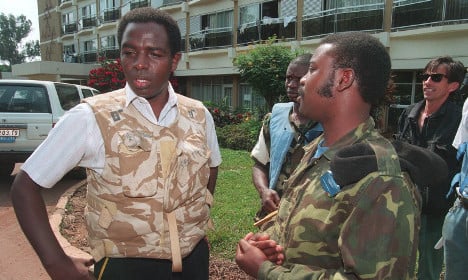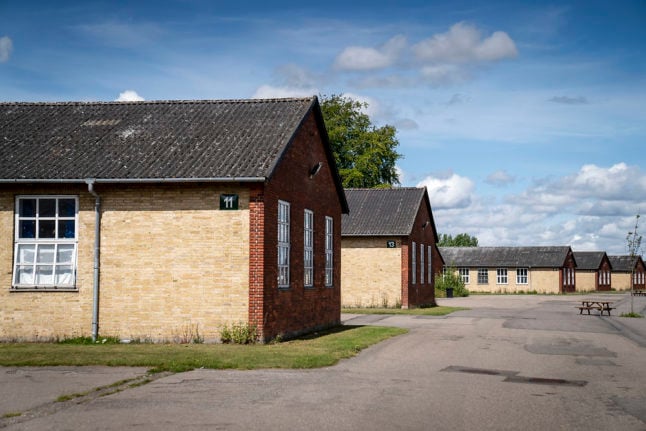RWANDA
France asks to drop Rwanda genocide case
Two decades after he was charged with genocide and torture, Paris prosecutors said on Wednesday they had asked for the case against a Rwandan priest to be thrown out, potentially souring ties between the two countries.
Published: 19 August 2015 17:27 CEST

A file photo taken June 28, 1994 shows Roman Catholic priest father Wenceslas Munyeshyaka (L) speaking with an unidentified Rwandan soldier (R) in Kigali. Photo: AFP
Father Wenceslas Munyeshyaka stands accused by authorities in both Rwanda and France of taking part in the mass slaughter of Tutsis that erupted in April 1994 following the death in a plane crash of Hutu president Juvenal Habyarimana.
The Catholic priest has lived in France since 1995 after fleeing his country and has refused repeated calls to return to Rwanda, while French authorities have declined to extradite him.
“From our investigations, it appears the role of Wenceslas Munyeshyaka during the 1994 genocide raised a lot of questions,” Paris prosecutor Francois Molins said in a statement.
“But the probe was not able to formally corroborate specific acts pertaining to his active participation” as a perpetrator or an accomplice, he added.
It is now up to magistrates to decide whether to bring the case to court or not.
Munyeshyaka was charged by a French judge in July 1995 with genocide, torture, mistreatment and inhuman and degrading acts.
He is accused of having turned over Tutsis sheltering in his Saint-Famille church — where hundreds had sought shelter — to Hutu militiamen surrounding the building.
In 2006, a Rwandan military court sentenced him in absentia to life in prison for rape and helping extremist militias.
Judges ruled that Munyeshyaka had on several occasions raided church halls where Tutsis were hiding to pick out young girls and women who were raped in nearby buildings.
But Munyeshyaka, who is now a priest in the northern French town of Gisors, denies all the charges.
He says he is the victim of a political set up and always did his best to help civilians.
If his case is dropped, it could further strain ties between France and Rwanda.
Rwandan President Paul Kagame has frequently accused Paris of complicity in the genocide through its support for the Hutu national government of the time, accusations which France has always rejected.
Dozens of legal proceedings have been launched in France against Rwandans suspected of contributing to the genocide.
In the first trial of its kind in the country, genocide suspect Pascal Simbikangwa was last year convicted and sentenced to 25 years in jail.
Url copied to clipboard!


 Please whitelist us to continue reading.
Please whitelist us to continue reading.